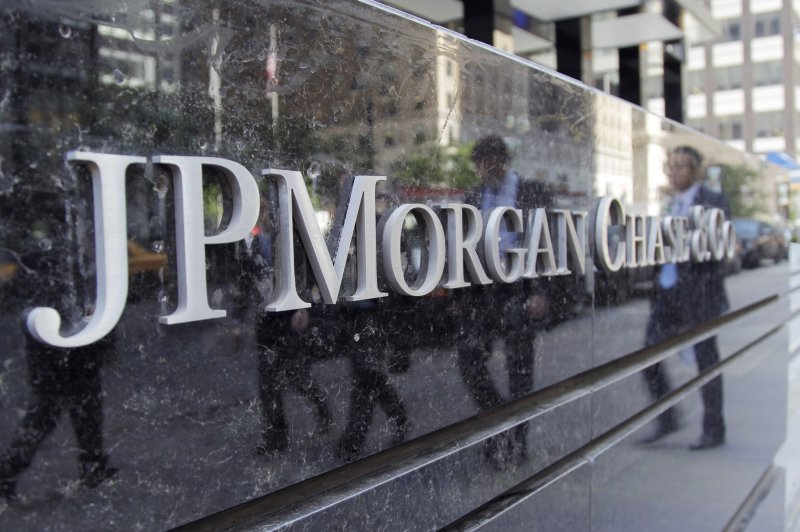WASHINGTON, Oct. 17 (UPI) -- JPMorgan Chase & Co. agreed to pay $100 million and admit wrongdoing after its London traders lost $6.2 billion in bad derivative bets, a U.S. regulator said.
The agreement by the nation's biggest bank, announced by the Commodity Futures Trading Commission, came a month after JPMorgan paid $920 million to four other regulators, including the Securities and Exchange Commission.
The newest payment brought JPMorgan's tally of government fines in the trading loss debacle to more than $1 billion.
The wrongdoing JPMorgan admitted to involved trading in a type of derivative called a credit default swap, a financial contract that let the bank profit when loans defaulted.
The bank's London office bought $51 billion of these derivatives from 2007 to 2011, during the financial crisis and ensuing Great Recession. But starting in January 2012, the swaps started dropping in value, the CFTC said.
To stem the losses, traders sold $7 billion in swaps Feb. 29, 2012, including $4.6 billion in 3 hours, the agency said.
This followed other multibillion-dollar sales Feb. 27 and 28, the agency said.
"By selling a staggering volume of the swaps in a concentrated period, the bank, acting through its traders, recklessly disregarded the fundamental precept on which market participants rely, that prices are established based on legitimate forces of supply and demand," the agency said.
The bank's strategy was "flawed, complex, poorly reviewed, poorly executed and poorly monitored," JPMorgan Chief Executive Officer Jamie Dimon later said in a hastily arranged conference call with analysts and investors.
He called the mistake "egregious, self-inflicted," and said, "We will admit it, we will fix it and move on."
In the agreement, announced Wednesday, JPMorgan admitted it failed to supervise traders, who distorted prices to reduce the bank's losses at the expense of other investors.
But the admission -- a rarity for a Wall Street bank, which fears such an acknowledgment could lead to mass litigation from shareholders -- wasn't as straightforward as Dimon suggested it would be.
Indeed, it almost became a deal-breaker, The New York Times said.
JPMorgan argued in negotiations with the CFTC that its trading was legitimate, the Times said.
But under threat of a lawsuit, the bank eventually offered to admit to committing only one day of bad acts, the Times said, citing people briefed on the matter.
That was down from the trading commission's initial demand of three days, the people said.
"We are pleased to be able to put behind us another aspect of the trading matter by the resolution of the CFTC investigation," JPMorgan said in a statement.
The agency's enforcement director credited the 2010 Dodd-Frank Wall Street Reform and Consumer Protection Act -- which brought about the most significant changes to U.S. financial regulation since the regulatory reforms that followed the Great Depression -- for giving teeth to the agency.
"In Dodd-Frank, Congress provided a powerful new tool enabling the CFTC for the first time to prohibit reckless manipulative conduct," David Meister said.
"As this case demonstrates, the commission is now better armed than ever to protect the market from traders, like those here, who try to 'defend' their position by dumping a gargantuan, record-setting, volume of swaps virtually all at once, recklessly ignoring the obvious dangers to legitimate pricing forces," he said.










